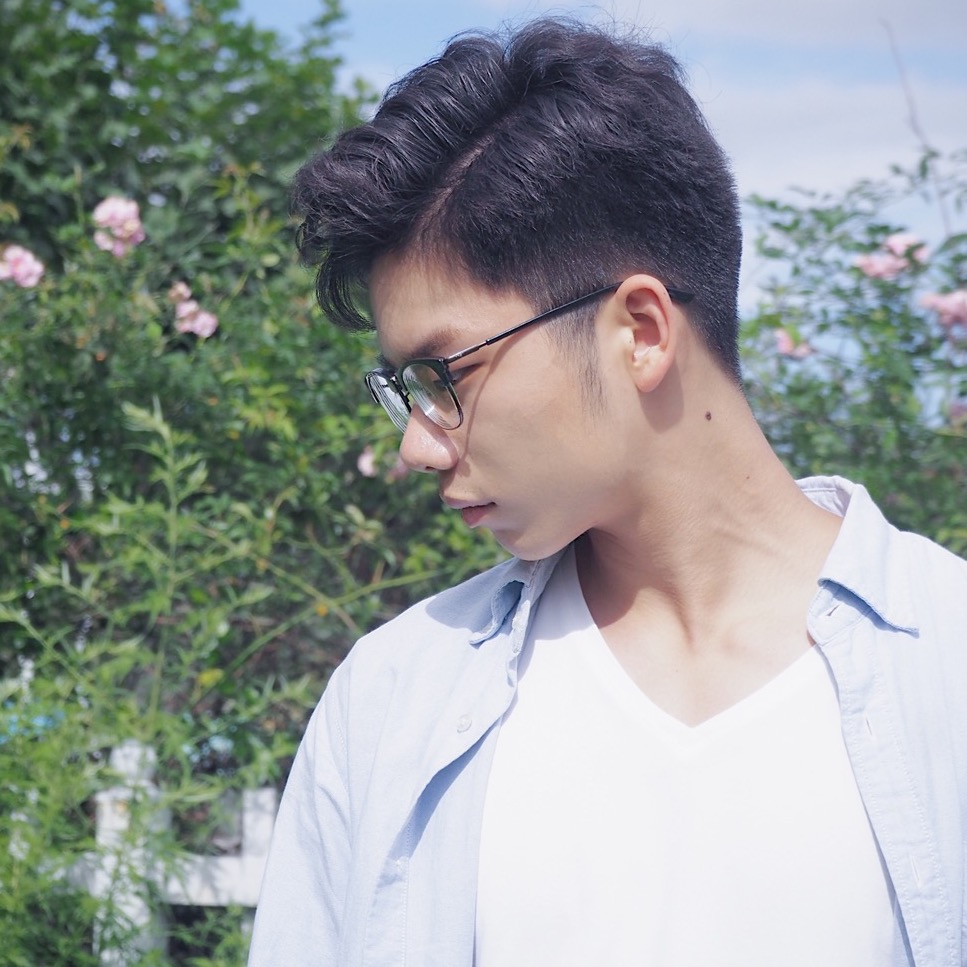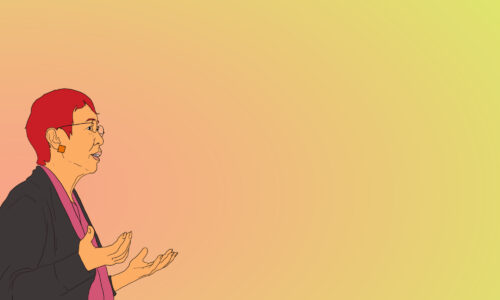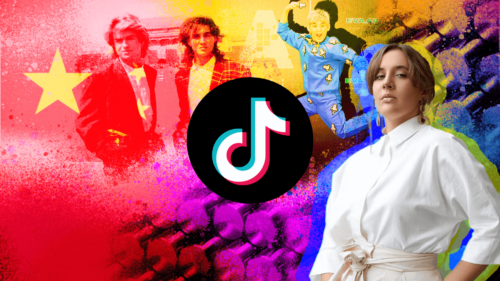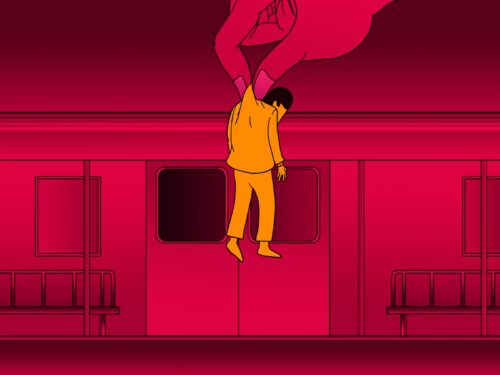She accused a Chinese media celebrity of sexual assault. He sued — and won
He Qian accused a celebrity journalist and promoter of philanthropic causes of sexually assaulting her when she was an intern at a news magazine in 2009 — only to be subjected to a defamation lawsuit. This #MeToo case gone wrong has revealed flaws in China’s legal system, which disincentivizes sexual assault victims from outing high-profile men.

Hé Qiān 何谦 wasn’t surprised when she received the Hangzhou court’s decision on January 5.
Two years earlier, in August 2018, during the height of China’s #MeToo movement, He Qian published an article on the WeChat account of her friend, Zōu Sīcōng 邹思聪, accusing Dèng Fēi 邓飞, a famous journalist and philanthropist, of sexually assaulting her in 2009. Three months later, Deng sued Zou for defamation, and then named He Qian as a joint defendant in July 2019. Suddenly, He Qian found herself ensnared in a legal battle that she had little chance of winning.
Because of the way China’s defamation law is set up, Deng only had to prove that his reputation was damaged — which it was, considering the public support He Qian received — while He Qian needed to provide evidence of the assault. That was impossible: too much time had passed, and she said she didn’t initially report the assault because she felt panicked and ashamed.
As the trial proceeded, Deng remained quiet. The court ruled in his favor on December 30, and then handed down the penalty on January 5: Zou and He were to both apologize to Deng and pay 12,112 yuan ($1,900) in damages. It was then that Deng gave his first public comments on the matter, calling the court’s ruling “justice,” and that he always “believed in the law.”
“It’s so absurd,” said Zou. “The court ruled in his favor, and that’s why he says he ‘believed in the law.’”
Reached by phone, Deng said, “I will wait for the final judgment.” (Zou filed an appeal on January 17.)
The court’s decision was met by anger. Many law experts criticized the ruling. Liú Jiāliáng 刘加良, a law professor at Shandong University, said the court’s interpretation of “burden of proof” was problematic — specifically in He’s case, that she had to prove “beyond a reasonable doubt” (the standard used in criminal proceedings) that an assault happened, rather than prove it with a “high degree of probability” (the standard used in most civil suits).
The law, unfortunately, puts victims in a bind. Studies have shown that 20% of sexual assault cases end up with the accused suing the accuser for defamation — and in most of these cases, the defamation cases are easier to win.
“Many times, in the absence of direct evidence, the court needs to decide whose testimony is more credible,” Lǐ Yíng 李莹, director of the Yuanzhong women’s rights center, wrote in an article. She slammed the court’s ruling on He Qian’s case. “It’s arrogant to adopt ‘beyond a reasonable doubt’ as the burden of proof,” she said. “[The court] lacks empathy for victims, ignoring several factors that go into sexual assault cases. It has discouraged future victims from seeking legal help.”

He Qian was among a small handful of women to reveal their real names during China’s #MeToo movement. At least 52 women, most of them anonymous, have accused tycoons, celebrities, professors, and journalists of sexual assault since 2018, with their testimonies gaining widespread support on social media.
“When I said my name out loud, my testimony became more credible,” He Qian wrote in an article titled “Know My Name” on November 10, 2020. “I will stand up and keep speaking out.”
For her, the past decade-plus have been a process of gradually eliminating the shame she felt after being assaulted. She said she still suffers from PTSD, and often breaks down while recounting the incident. In 2009, the story goes, when she was a 21-year-old intern at the news magazine Phoenix Weekly, she went to Deng Fei’s hotel room at his request to discuss a story. It was there that he forcibly kissed and groped her.
She first revealed the assault in August 2018, posting on Zou Sicong’s WeChat account and giving a forceful voice to #MeToo. But she was attacked by those who said she “hid behind anonymity to destroy a public celebrity.”
“The best response was revealing my name and identity,” He Qian told me. In her article “Know My Name,” she writes about how the experience of detailing the assault forced her to confront the trauma.
“I felt an unprecedented release,” He Qian wrote. “Narrating the events in public is painful, but gave me a sense of serenity.”
During her first testimony on July 17, 2019, she looked out and saw her lawyers and friends crying. It was then, during that powerful moment, that she had felt closer to them than ever.
Speaking out has also empowered other victims. Many people, both online or offline, have told He Qian their stories about being sexually assaulted. They have revealed their traumatic experiences in the comment section on her article, cried over the phone, and hugged her in real life, seeking comfort in the other’s experience.
It was before the trial that He Qian also met Zhou Xiaoxuan, a.k.a., Xiánzi 弦子, who in 2018 accused prominent state media host Zhū Jūn 朱军 of sexually harassing her in 2014. She and Xianzi bonded and accompanied each other in their respective trials in different cities. (Xianzi had her day in court last month in Beijing, though Zhu Jun no-showed.)
“If the court can’t give us justice, we’ll ask for it from society; if we can’t get justice at the moment, we’ll ask for it from history,” He Qian said, borrowing a phrase from a Chinese activist that has become a motto among sexual assault survivors.
The future of the #MeToo movement doesn’t necessarily depend on one case, but cases like He Qian’s and Xianzi’s will influence future cases, said Lǐ Sīpán 李思磐, director of the feminist NGO New Media Women Network.
“He Qian’s case may not change the jurisprudence from 10 years back, but this case, together with a chain of other cases, will change future court judgments,” Li said. “This case was lost because of a lack of evidence, so people will know to keep evidence [of assault] and call the police if they find themselves in a similar situation.”
The #MeToo movement will also continue to push legislative reform to prevent sexual assault, protect victims, and hold perpetrators accountable, Li said.
“I felt I was stripped naked online as I let people gaze in and examine my experiences and trauma,” He Qian said. “I maintain hope that it will have been worthwhile.”






